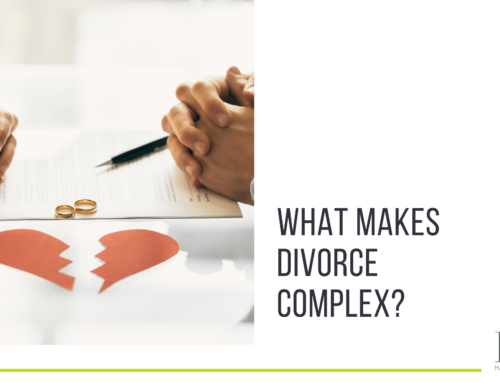When you are going through financial proceedings during your divorce, there can be two types of court order:
- One which sets out the terms of the financial settlement and is either agreed by the parties or imposed by the judge and usually comes at the end of the proceedings; and
- Within the proceedings, there can be case management orders setting out the documents or information required to progress to a final settlement.
Sometimes one party will give a promise to the court to do something which is integral to the terms of the order. This promise to the court is called an undertaking. Failure to keep that promise amounts to contempt of court which can have very serious consequences.
Any of these orders or undertakings can be enforced. There are various stages of enforcement:
- A warning about not complying with the order;
- A court order called a “penal notice” to say that if non-compliance continues it can be punished by a fine or imprisonment; and
- A committal application is for the person in default to be punished. The usual penalties are a fine, a suspended prison sentence or imprisonment. In addition, the defaulter is usually ordered to pay the legal costs incurred by the other party in the enforcement proceedings.
Enforcement action
The penalties for not complying with an order are severe, but they are intended as a deterrent to prevent non-compliance of a court order.
It is very rare that someone has to be sent to prison for defaulting on an order. However, last year, an 83-year-old man, Mr Hart, was sentenced to 14 months in prison at the High Court in Bristol for his wilful failure to comply with the orders and undertaking following his divorce.
Mr Hart had been ordered to transfer one of the family businesses to his wife following their divorce and he had given an undertaking which said that he would do so in a manner which enabled a smooth transfer. He failed to comply with the undertaking.
Mrs Hart had to apply to the court for possession of the company premises. When Mrs Hart was finally able to take possession, almost all of the management records were removed which meant she could not efficiently run the business. Mrs Hart had to apply for these documents to be released to her and there were several hearings about this when Mr Hart said he would provide the information and then failed to do so.
Despite the fact he produced many of the documents on the morning of his sentencing hearing the judge felt that his contempt of court was so serious and the effect on his wife and the company was so dire that a financial penalty was inadequate, and it wasn’t appropriate to suspend a sentence because of the opportunities he had already had to comply. He was also ordered to pay his wife’s costs of the enforcement application.
Most people accept the authority of the court and comply with orders to the best of their ability. If it is not possible to comply it is important to notify the court and ask to have the order amended.
Divorce cases involving businesses
Divorce cases involving businesses can be complex and it is important to have expert specialist family law advice to ensure that that the terms of any agreement or order are appropriate and fair and can be complied with. There are lots of potential pitfalls which need to be avoided and anyone going through a divorce or separation who has a business should ensure that they have solicitors who are experienced in dealing with complex cases and hidden assets. Here at Harrogate Family Law we have extensive experience of dealing with complex divorce cases involving businesses and are here to help. Call us today on 01423 594680.
Andrew Meehan is an experienced family lawyer specialising in complex divorces involving significant or hidden assets, as well as cases involving children.
He is recommended for family law by both Chambers 2019 (York, Hull and surrounding regions) and the Legal 500 2018 (Leeds/West Yorkshire and North Yorkshire region).
Everyone’s circumstances are different and this article is provided by way of general information only and must not be replied upon. If you require legal advice on a family law issue, please feel free to contact us by emailing enquiries@harrogatefamilylaw.co.uk.






